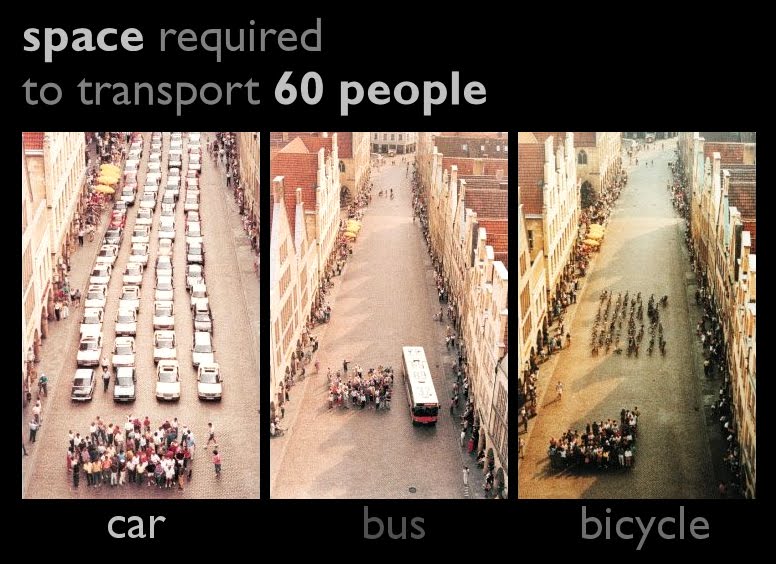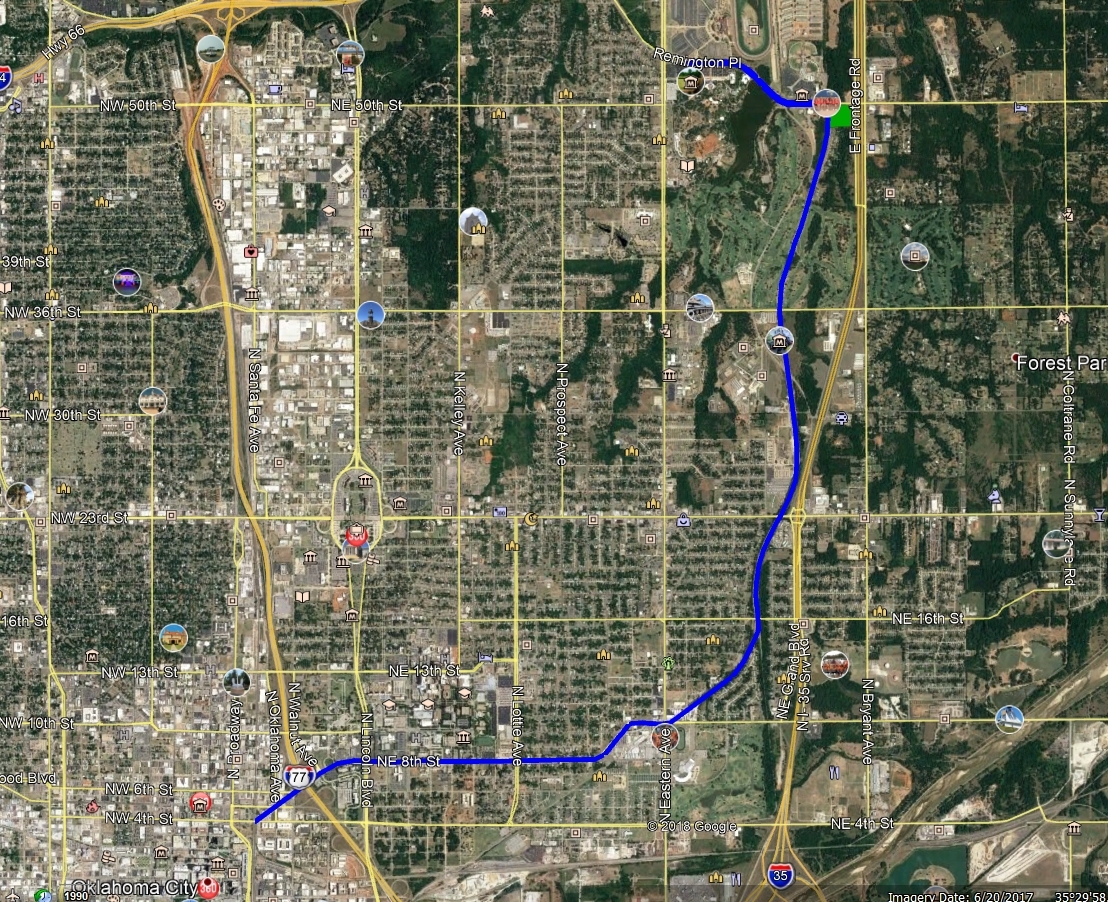No, autonomous cars will not “abolish transit” in dense cities
Is transit headed for a collision with self-driving cars? David Z. Morris in Fortune writes about how anti-transit Republicans are using the prospect of self-driving cars to argue against transit investments.
Alarmingly, he quotes nobody who can actually refute this argument, except in the fuzziest of terms.
Here is the recommended response:
We are currently in that phase of any new techno-thrill where promoters make grandiose claims about the obsolescence of everything that preceded them. Remember how the internet was going to abolish the workplace?
In any case, technology never changes facts of geometry. However successful driverless cars become, transit will remain crucial for dense cities because cities are defined by a shortage of space per person. Mass transit, where densities are high enough to support it, is an immensely efficient use of space.
(Remember, a great deal of bus transit is in places where densites are not high enough to allow it to succeed; this is evidence of anti-ridership “equity” or “coverage” policies, not of transit’s failure. Driverless taxis could certainly replace transit in those areas, assuming the pricing were gotten right, thus allowing transit agencies to focus on their core business.)
In many cases, people talking about driverless cars replacing transit are talking from an outer-suburban point of view, based on the experience of low-density, car-dependent places that are unsuited to high-ridership transit. In those settings, if density is not increasing, they are probably right. Driverless taxis will be more efficient than transit in these areas.
But all over the world, people are moving into dense cities, where even autonomous cars can’t replace a bus full of 60 people or a train full of hundreds. There simply isn’t enough space to put walls between every pair of travellers, as the car model of transportation requires. Nor will driverless taxis ever be there whenever you need them as great transit lines will. Like bikeshare systems, they will experience surges where many of the vehicles are in the wrong place.
A city can of course choose to sprawl and avoid density to the point that driverless cars could dominate. But in so doing it will fail to create a place that the 21st century economy will reward. Real estate prices are already telling us that the market has chosen dense cities as the highest value form of development. There is no dense city in the world that does not rely heavily on transit, for reasons of space-efficiency that none of the new technologies can change. (Yes, autonomous vehicles will use space more efficiently than private cars do, but this is saying very little compared to what a great rapid transit network is achieving.)
Again, technology never changes geometric facts. And the problem of cars in dense cities, and transit’s superiority there, is a geometric fact, a fact about space and its scarcity.



 Reply With Quote
Reply With Quote




Bookmarks